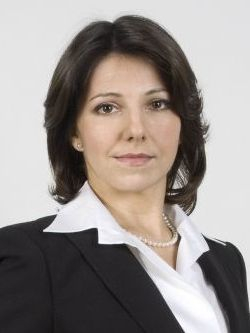The MT Conferences section did not involve the reporting or the editorial staff of The Moscow Times.

Julia Borozdna
Head of Employment and
Migration Law Practice
Pepeliaev Group
The year 2013 has been marked by numerous developments in HR-related regulation and law enforcement practice. Here we will deal only with the most significant.
Most HR professionals, especially those in manufacturing, have noted a sea change in the area of compensation for work in hazardous conditions. At the start of 2013, both the Russian Supreme Court and the Russian Constitutional Court confirmed that those working in hazardous conditions are entitled to all three types of recompense allowed under the law (a shortened working week of 36 hours, additional paid leave of 7 days and a 4 percent salary increase) if hazardous conditions are revealed when their workplaces are assessed in terms of the working conditions. In October the new draft law "On the Special Assessment of Workplaces in Terms of Working Conditions" was put before the State Duma. The law provides a new special assessment regime which replaces the old assessment procedure. According to the draft law (which may undergo further changes during the legislative process) the minimum compensation for work in hazardous conditions will remain the same, while administrative liability will rise substantially for violations of health and safety requirements.
In July this year a ban on discriminatory job advertisements came into effect (Federal Law No. 162-FZ dated July 2, 2013), increasing the workload of recruitment specialists. It is not allowed for advertisements of job vacancies to contain discriminatory requirements for candidates, such as age, sex, race, nationality, language, etc. Such matters may be specified only if the features of the particular job or specific legislative requirements make them necessary (e.g. where work is to be performed in hazardous conditions, it is prohibited to employ persons under the age of 18). Posting of discriminatory information will lead to administrative fines for a company and/or its management.

Alexander Korkin
Senior Associate, PhD in Law
Pepeliaev Group
Authorities pay more and more attention to employment of the disabled people. According to another new law that has been effective since July (Federal Law No. 183-FZ dated July 2, 2013) regional legislative bodies may now place an obligation on employers with 35 employees or more to set aside jobs for the disabled (previously, this minimum figure was 100 employees or more). Although setting quotas for companies was a questionable measure to increase employment of the disabled, it has now been extended to smaller companies.
As always, there is some good news alongside the bad. The new category of employees working remotely came into effect in April (Federal Law No. 60-FZ dated April 5, 2013). With respect to such employees, employers have fewer health and safety obligations, while interacting with them may become easier because electronic signatures may be used for HR paperwork. Importantly, it is possible to dismiss remote employees on grounds provided for by the employment contract.
The autumn session of the State Duma promises to be interesting for HR professionals: about 30 laws on labor, employment and migration matters will be considered. The old saying goes that a little hard work never hurt anyone, and this is definitely an adage that will be in the minds of Russian employment lawyers over the coming months. Not only will they be monitoring the courts and the actions of state authorities to see how the recently enacted new laws are implemented; they will also be monitoring the progress of new measures through the legislative process. Helping employers through this minefield will be a tough job in itself.
The MT Conferences section did not involve the reporting or the editorial staff of The Moscow Times.
A Message from The Moscow Times:
Dear readers,
We are facing unprecedented challenges. Russia's Prosecutor General's Office has designated The Moscow Times as an "undesirable" organization, criminalizing our work and putting our staff at risk of prosecution. This follows our earlier unjust labeling as a "foreign agent."
These actions are direct attempts to silence independent journalism in Russia. The authorities claim our work "discredits the decisions of the Russian leadership." We see things differently: we strive to provide accurate, unbiased reporting on Russia.
We, the journalists of The Moscow Times, refuse to be silenced. But to continue our work, we need your help.
Your support, no matter how small, makes a world of difference. If you can, please support us monthly starting from just $2. It's quick to set up, and every contribution makes a significant impact.
By supporting The Moscow Times, you're defending open, independent journalism in the face of repression. Thank you for standing with us.
Remind me later.





